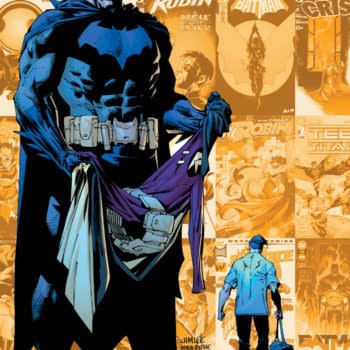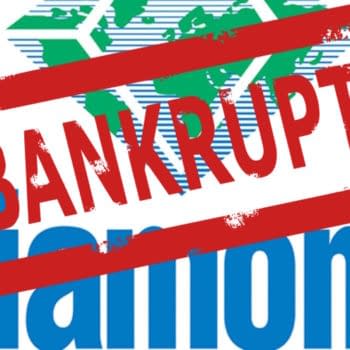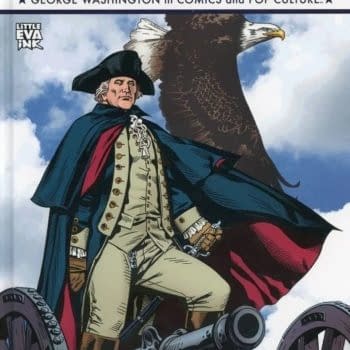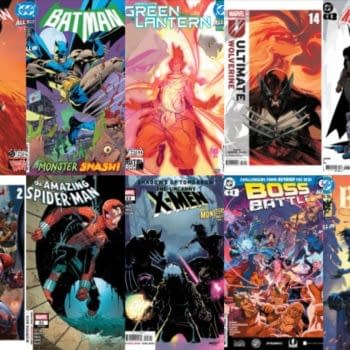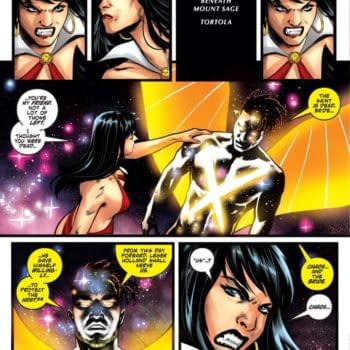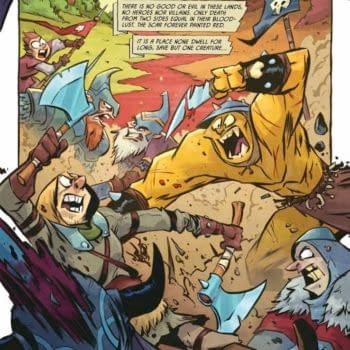Posted in: Comics, Look! It Moves! by Adi Tantimedh | Tagged: games
Look! It Moves! by Adi Tantimedh #91: Play The Story!
Started playing DRAGON AGE 2 this week and it made wonder if this was one direction in which the future of serial storytelling was going. (Now, I'm not going to comment on the gameplay design as that's been discussed to death in game reviews and forums, and anyway, I don't do game reviews).
To those people who haven't played it and will never play it (which makes me wonder why they'd be reading this column), DRAGON AGE is a computer Role-Playing Game series set in a Toikein-esque high fantasy medieval world with humans, elves, dwarves, dragons, ogres and orc-like demon armies, but also crossed with the revisionist grey moral shadings as found in George RR Martin's A SONG OF ICE AND FIRE novels where not everything is black and white and the player is forced to make a moral choice that's more often the lesser evil rather than outright good. You get to choose the gender of your character and modify their face, hair and looks, you get to choose which supporting cast members join you on missions, which of them you decide to start or romance with, and you affect the outcome of the story in several cases based on moral decisions and which faction's side you take.

As in other Bioware games like the MASS EFFECT series and DRAGON AGE: ORIGINS, there are so many subplots and story material that playing the whole game feels like the equivalent of playing through the story of an entire 22-episode TV series. What's notable to me about DRAGON AGE 2 is its refinement of the story to make the game feel even more like a movie or TV series that creates the illusion that the player is writing the story as he or she plays through it. The plots of MASS EFFECT games and DRAGON AGE: ORIGINS are fairly generic: the hero is a badass thrust into long campaign where they have to gear up, meet the right people, fight through various chapters before arriving at a final fight with a Big Bad to save the world. What makes Bioware games memorable is the amount of effect in making the characters and their relationships with the main character interesting and compelling enough for players to become fans emotionally invested in the same way that we become emotionally invested in TV series and comics. DRAGON AGE 2 actually breaks from that generic plot structure and tries something new.

In DRAGON AGE 2, the main character you play is Hawke, who starts out as a refugee trying to ferry her (I'll refer to the hero as female just to be contrary) siblings and mother out of war-ridden Lothering to safe haven in the city-state of Kirkwall. Once there, she finds herself having to scrape a living together working as a bodyguard, messenger and occasional assassin for anyone paying a decent wage, and over the next ten years, she comes to accumulate so much money and political power that she becomes the city's champion. However, she doesn't have a central mission like preparing for an invasion or a fight with a Big Bad. The game is really about Hawke getting from one year to the next trying to protect her friends, family, make a living and not get killed in the process, but she keeps getting thrust into key situations in Kirkwall's history where her actions end up having a major effect on how the world turns out. And unlike previous Bioware games where the hero's progress is one towards an epic triumph over a major adversary, Hawke's story is one of progressive tragedy. While you get to role-play Hawke by choosing how she responds to people until she's either an earnest goody-goody, an aggressive no-nonsense bitch or a wisecracking cynic the shift from an epic storyline to a more intimate and personal one gives this role-playing a more intimate and immediate feel than in ORIGINS or MASS EFFECT. This might also be a result of the game set almost exclusively in Kirkwall and its outskirts, so there's a sense that this place is Hawke's home and whatever happens to it is more personal where the hero in ORIGINS and MASS EFFECT travels all over the kingdom or galaxy with the option of pissing off whenever they felt like it.

Aside from all that, the game's story pretty much unfolds the same way an episodic TV series does: there are main plotline missions that lead to a big payoff as you take Hawke through them, but along the way, subplots, many of them optional, will open up as well. Hawke gets hired by a fleeing aristocrat to protect him from assassin; a magistrate hires Hawke to quietly bring back an escaped convict alive without anyone knowing; a prince asks Hawke to help him take revenge for the murder of his family; Hawke agrees to take down a band of Qunari bandits who attack caravans along the coast; Hawke is pulled into a hunt for a serial killer; Hawke has to help track down a band of rogue mages who practice blood magic; an escaped elven slave joins Hawke's band and wants help hunting down his former master so he can kill him and so on. Basically you're practically playing DRAGON AGE: HAWKE PI as she goes around the city solving problems for people who pay her. What's surprisingly resonant is the politics of the game somehow reflecting certain situations in Britain right now, especially when the makers are Canadian. The chief themes in the story involve immigration, racism and class tensions. Hawke and her family arrive in Kirkwall as refugees seeking asylum and are looked upon with contempt. She's often called upon to deal with corrupt Templars and help exploited workers and immigrants. The humans treat elves and Quanari are treated with racist bile throughout the story, and so on. In fact, the emphasis on politics and sheer angst makes it all feel very British.
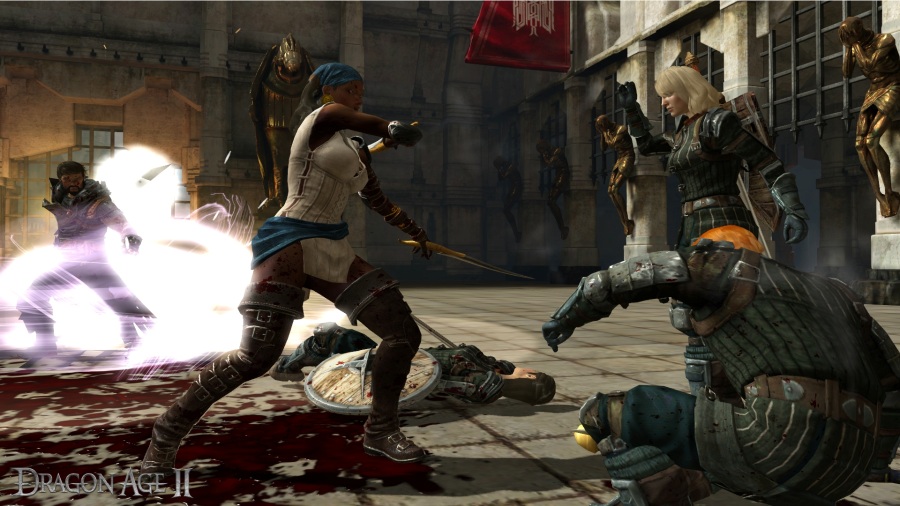
The emphasis on the story as an enticement to make us play through the game to the end also throws up some interesting issues: you are playing through a story that the makers have preset. Certain major outcomes can't be avoided, and there is really only the illusion of player freedom in determining the outcome of storylines – your hero has only the pre-determined paths the writers set, and stories need that, otherwise total player freedom would end up with the hero running around shagging and/or killing everything in sight for the sheer hell of it. You get the element of surprise when you're confronted with the consequences of your choices the first time you play through the game, but that novelty wears off when you play a second time, because by then you'll know what comes next and the seams start to show, the mechanics of the emotional manipulation are laid bare, pretty much like your typical Hollywood script, really. However, the idea of picking the hero's dialogue choices and then playing the fights for them makes it feel more immediate than passively sitting and watching a story. This is something that Hollywood is having trouble understanding or beating right now, since games are making more money and faster than Hollywood blockbusters. Then again, with the emphasis on increasingly slick graphics and stories that take their cues from Hollywood movies and TV series in their emphasis on blockbuster genres and stories, AAA video games are increasingly like Hollywood already.
More swords at lookitmoves@gmail.com
Follow the official LOOK! IT MOVES! twitter feed for thoughts and snark on media and pop culture, stuff for future columns and stuff I may never spend a whole column writing about.
Look! It Moves! © Adisakdi Tantimedh







